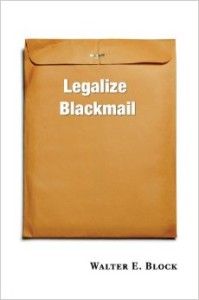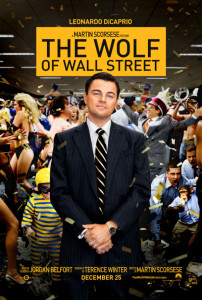This summer I had the honor of speaking on the Laissez-Faire Books panel at FreedomFest, the annual libertarian mega-event put on by Mark Skousen in Las Vegas. Now the audio of the panel — the theme of which was “Live Better, Live Liberty: The Quest to Get Government Out of Our Lives” — is online:
http://www.youtube.com/watch?v=Lk2Zk3zCpE8
The lineup for the panel includes:
- Robert Murphy, speaking on alternative educational institutions
- Wendy McElroy, speaking about her new book, The Art of Being Free
- Jeffrey Tucker, on “defying the plan through your own digital civilization”
- Jacob Huebert, on private forms of security and dispute-management,
- Stefan Molyneux, on “redefining communities of peace and learning,” and
- Douglas French, as emcee
If you only have time for part of this two-hour event, then at least be sure to listen to Jeffrey Tucker’s talk. I have already heard from people who have said they found this presentation life-changing, and I understand why. Tucker talks about how we can defeat the state by creating better products through the market, rather than by just following the old think-tank model. He’s putting these ideas to work through LFB, but, as he explains, there is so much more to be done by people who aren’t just selling books or ideas.
The other talks were very well-received, too. First, Robert Murphy talks about one of my favorite topics, the importance of education in the advancement of liberty.
Next, Wendy McElroy offers a taste of her latest book, The Art of Being Free, which is available in paperback and as a free e-book for members of the Laissez-Faire Club. (The talk is great, but you may just want to skip directly to the book and start reading, since that’s what you’ll end up doing anyway.)
For my part, I talk about ways that the market already provides security and dispute-resolution through products such as credit cards, smartphones, and Yelp. When people think about how the market would provide these goods in the absence of government, they tend to look back to ancient examples (e.g. Iceland, Ireland) or speculate about insurance companies funding police and armies — but perhaps the most relevant examples already exist today, right in front of our faces (or in our wallets).
Finally, the inimitable Stefan Molyneux offers his usual clarity and enthusiasm in arguing that we must make the moral case for liberty. I don’t agree with his suggestion that we must only make moral arguments — I think consequentialist arguments may often be a good place to start, as I argue in my foreword to LFB’s new edition of Gary Chartier’s Conscience of an Anarchist. Still, Molyneux is compelling and enjoyable, and if you like his approach, there is of course much more at his site, Freedomain Radio, and in his books, two of which are also available from LFB.
 I was fortunate enough to get a PDF preview of Walter Block’s new book, Legalize Blackmail, before it was published, and today I was delighted to receive my hardcover copy in the mail.
I was fortunate enough to get a PDF preview of Walter Block’s new book, Legalize Blackmail, before it was published, and today I was delighted to receive my hardcover copy in the mail.
 A
A  Murray Rothbard, the great libertarian theorist and economist,
Murray Rothbard, the great libertarian theorist and economist,